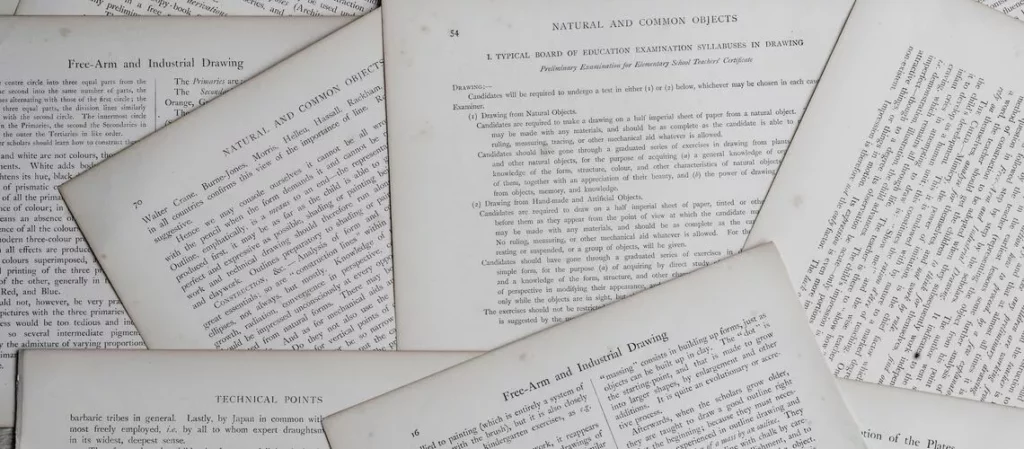professional residential, commercial and rural property valuations
Welcome to Brisbane Catchment Valuations
your trusted property valuation experts in Brisbane and surrounding areas
Our Core Services
Residential Valuations
Commercial Valuations
Rural Property Valuations
Valuer News

How to Choose the Right Property Valuer in Australia
Selecting the right property valuer is a critical step in ensuring an accurate and reliable property valuation. Whether you’re buying, selling, or refinancing, the expertise of a skilled valuer can make a significant difference in your financial decisions. This article explores the key considerations to keep in mind when choosing a property valuer in Australia.
Why Choosing the Right Property Valuer Matters
The accuracy of a property valuation can have a profound impact on various aspects of real estate transactions. From determining the asking price to securing a mortgage, the valuation is a cornerstone of informed decision-making. An inaccurate valuation can lead to financial losses, making it essential to choose a competent valuer.
Experience and Qualifications
Experience is one of the most critical factors when selecting a property valuer. Valuers with extensive experience in the local market are more likely to provide accurate and reliable valuations. Additionally, ensure that the valuer holds relevant qualifications and is registered with a professional body, such as the Australian Property Institute (API).
Local Market Knowledge
A valuer’s knowledge of the local market is invaluable. Property markets can vary significantly from one region to another, and a valuer who understands the nuances of the local market will be better equipped to assess the value of your property accurately. When choosing a property valuer, prioritise those with a strong track record in your area.
Reputation and Reviews
The reputation of a property valuer is a strong indicator of their reliability and expertise. Look for valuers with positive reviews and testimonials from past clients. Online reviews, word-of-mouth recommendations, and references from real estate agents can provide insights into a valuer’s performance and professionalism.
Accreditation and Memberships
Accreditation by professional bodies and membership in industry associations, such as the Australian Property Institute, are indicators of a valuer’s commitment to maintaining high standards. These organisations enforce strict ethical guidelines and continuous professional development, ensuring that their members stay up-to-date with industry best practices.
Transparency and Communication
A good property valuer should be transparent in their processes and communicate clearly with clients. They should be willing to explain their methods, answer questions, and provide a detailed report that outlines the factors considered in the valuation. Transparency and open communication are key to building trust and ensuring a smooth valuation process.
Conclusion
Choosing the right property valuer is a crucial step in ensuring the accuracy of your property’s valuation. By considering factors such as experience, local market knowledge, reputation, and accreditation, you can make an informed choice and secure a reliable valuation. Trusting the right professional can make all the difference in your real estate transactions.

Mastering Commercial Property Valuation in Sydney: Your Essential Guide
In Sydney, understanding the valuation of commercial properties is crucial for anyone involved in real estate investment, management, or sales. This guide provides a thorough exploration of the valuation process tailored to Sydney’s unique market conditions, helping stakeholders make informed decisions.
What is Commercial Property Valuation?
Commercial property valuation in Sydney involves estimating the value of property used for business purposes. It is a critical step for financial reporting, insurance, taxation, and transaction advisory. The valuation reflects the current market conditions and the property’s potential for income generation.
Top Methods Used in Sydney’s Valuations
- Market Approach: This widely used method assesses property values by comparing them with similar properties that have recently been sold in the same area, adjusting for factors like location, size, and condition.
- Income Approach: This method is vital for properties that generate rental income. It involves projecting future income streams and discounting them to their present value, providing a clear picture of the property’s profitability.
- Cost Approach: This approach calculates what it would cost to replace the property’s structure, subtracting any depreciation. This is particularly relevant for newer properties or those with unique modifications.
Factors Influencing Property Values in Sydney
- Market Dynamics: The overall health of Sydney’s real estate market, including supply and demand dynamics, plays a crucial role in valuation.
- Location Specifics: Sydney’s diverse neighborhoods have varying attributes that can dramatically affect property values, from downtown commercial hubs to suburban locales.
- Property Features: The age, design, usability, and condition of the property can all influence its assessed value.
- Regulatory Environment: Local zoning laws, planning regulations, and potential developmental restrictions can impact valuations significantly.
Why Opt for Professional Valuations?
Given the complexities involved in accurately valuing commercial properties in Sydney, it is advisable to engage with experts who specialize in the local market. Property Valuation Sydney services are tailored to meet specific local requirements and provide reliable, compliant valuations.
Conclusion
With a proper understanding of commercial property valuation methods and factors, stakeholders in Sydney can navigate the market more effectively. Whether you are buying, selling, or managing commercial properties, a professional valuation is a tool that ensures you are well-equipped for decision-making.

Determining a Property’s Worth: Valuation Methods Explained
Exploring the Key Approaches to Property Valuation
Property valuation is a complex process that involves several methodologies to determine the value of real estate. Understanding these valuation methods is crucial for homeowners, investors, and professionals in the real estate industry. Here, we delve into the primary approaches used in Sydney property valuations.
Sales Comparison Approach: The Market-Based Valuation
The sales comparison approach is a widely used method for residential property valuation. This technique involves comparing the property in question to similar properties that have recently been sold in the same area.
- Consideration of factors like location, property size, and condition.
- Adjustments made for differences in features and amenities.
- Reliance on current market data for accuracy.
The Cost Approach: Assessing Property Value from the Ground Up
The cost approach is commonly used for unique properties or those with few comparable market sales. This method estimates the cost to rebuild the property from scratch, considering the land value and depreciation.
Key Elements of the Cost Approach
- Estimation of the land value as if vacant.
- Calculation of the current cost to construct the property’s structure.
- Deduction of depreciation due to physical wear, functional or design obsolescence.
The Income Approach: Valuation for Investment Properties
Ideal for commercial and investment properties, the income approach focuses on the potential revenue that the property can generate. This method is crucial for investors and developers who prioritise return on investment.
Understanding the Income Approach
- Analysis of the property’s ability to generate income through rent or other means.
- Consideration of factors like vacancy rates, operating expenses, and potential income.
- Application of a capitalisation rate to estimate the property’s value based on its income.
Combining Valuation Methods for Comprehensive Analysis
In practice, valuers may combine different approaches to achieve a more accurate valuation. The choice of method depends on the property type, the available data, and the purpose of the valuation.
Integrating Multiple Approaches for Enhanced Accuracy
- Using the sales comparison approach for residential properties with ample market data.
- Applying the cost approach for unique or newly built properties.
- Employing the income approach for commercial or rental properties.
By understanding these various valuation methods, individuals and professionals can gain insights into how property values are determined and what factors influence these valuations. Whether you’re assessing the value of a residential home, a unique property, or an income-generating investment, being aware of these approaches can aid in making informed real estate decisions.

Tracking Property Value Changes in Your Portfolio
The Importance of Regular Portfolio Valuation
For property investors, especially in dynamic markets like Brisbane, keeping a close eye on the value of your investment portfolio is essential. Regular portfolio valuation offers numerous advantages, positioning investors to capitalise on opportunities and make informed decisions.
Assessing Market Trends and Property Values
Understanding how market trends in Brisbane affect your portfolio is key. Fluctuations in property values can significantly impact your investment strategy, and staying informed enables proactive adjustments.
Identifying Opportunities for Growth
Regular valuation helps identify growth opportunities. This could involve expanding your portfolio in high-growth areas or divesting from properties that have reached their peak value.
The Role of External Factors in Valuation Changes
External factors, such as economic shifts, government policies, and local development projects, can greatly influence property values in Brisbane. Staying abreast of these changes is vital for timely decision-making.
Strategies for Effective Investment Tracking
Utilising Technology for Portfolio Management
- Investment Tracking Software: Utilising software solutions for tracking property values can streamline the process, providing real-time data and analytics.
- Real Estate Market Analysis Tools: These tools offer insights into current trends and future projections, aiding in strategic planning.
Engaging with Property Valuation Professionals
Seeking expertise from valuation professionals provides an accurate understanding of your portfolio’s worth. They offer a comprehensive analysis, considering both current market conditions and future projections.
Regular Property Appraisals
Regular appraisals by professionals ensure that your portfolio valuation reflects the latest market dynamics, allowing for timely decisions.
Navigating Portfolio Valuation in Brisbane’s Dynamic Market
Staying Informed of Local Real Estate Developments
Keeping up with real estate developments in Brisbane, such as new infrastructure projects or zoning changes, can give investors an edge. These factors can significantly impact property values and investment potential.
Adapting to Market Shifts
The ability to adapt your investment strategy based on the current market scenario is crucial. Regular portfolio valuation equips you with the knowledge to make such adjustments, whether it’s buying, selling, or holding properties.
Key Takeaway
In conclusion, tracking property value changes in your investment portfolio is a critical aspect of successful real estate investing, particularly in vibrant markets like Brisbane. Regular portfolio valuation, coupled with strategic analysis and professional advice, empowers investors to make informed decisions, maximising their investment potential.

The Role of Interest Rates in Property Valuation: How changes in Australia’s interest rates can impact property value.
The Australian property market is a dynamic and ever-changing landscape, influenced by a multitude of factors. One key factor that significantly impacts property values is interest rates. In this article, we will explore the crucial role that interest rates play in property valuation, particularly within the context of the Australian economy. We will delve into the relationship between interest rates and property value, how changes in interest rates can affect the real estate market, and why property valuers Brisbane closely monitor these fluctuations.
Understanding Interest Rates
Interest rates, as set by the Reserve Bank of Australia (RBA), represent the cost of borrowing money. They are a powerful tool used to manage inflation, employment levels, and overall economic stability. When interest rates rise, borrowing money becomes more expensive, which can have a significant impact on property valuations.
Impact on Property Value
When interest rates are low, property values tend to rise. This is because low interest rates make borrowing money more affordable, stimulating demand for property purchases. Increased demand leads to heightened competition among buyers, driving up property prices. As a result, property owners may experience an increase in their property’s overall value.
Conversely, when interest rates rise, property values can stagnate or even decline. Higher interest rates make it more expensive for potential buyers to secure a mortgage, leading to a decrease in demand. This reduced demand can cause property prices to soften or potentially drop. Therefore, property valuers in Brisbane pay close attention to interest rate fluctuations as they directly impact property valuation assessments.
Role of the Australian Economy
Australia’s interest rates do not exist in isolation; they are closely tied to the overall health of the Australian economy. When the economy is strong, the RBA may increase interest rates to combat inflationary pressures. On the other hand, during economic downturns, the RBA may decrease interest rates in an attempt to stimulate growth.
Such changes in interest rates can have a significant impact on the property market. For example, during periods of economic expansion, interest rate hikes can help cool down an overheated property market, preventing a housing bubble. Conversely, during economic downturns, lower interest rates can help stimulate property sales and maintain stability in property values.
Importance of Property Valuers in Brisbane
Property valuers in Brisbane play a vital role in determining the fair market value of properties. They meticulously analyse various factors, including interest rates, to provide accurate and reliable property valuations. By incorporating interest rate data into their assessments, property valuers ensure that property owners and potential buyers have an up-to-date understanding of the property’s value within the current economic climate.
Interest rates have a substantial impact on property valuations in Australia. Fluctuations in interest rates can influence property values, with low rates typically driving prices upward and high rates potentially causing stagnation or decline. The Australian economy and its overall health are closely linked to these interest rate changes, further emphasizing their importance. Property valuers in Brisbane closely monitor interest rate fluctuations to ensure that property valuations accurately reflect market conditions. By considering the role of interest rates, property owners and potential buyers can make informed decisions in the ever-changing landscape of the Australian property market.

How to Read and Understand Your Property Valuation Report
A property valuation report provides an estimate of the market value of a residential or commercial property. It is an important document for property owners and real estate investors. This guide will help you understand the key sections and data points in a typical valuation report.
Property Details
- Address and property type (house, apartment, land etc)
- Land area and building area
- Number of bedrooms and bathrooms
- Special property features like pool, garage, waterfront access etc.
Knowing these basics helps provide context for the valuation.
Valuation Date
The valuation is done as on a particular date. The value conclusion is based on market conditions prevalent on that date. Real estate markets are dynamic, so a report gets outdated after 3-6 months typically.
Valuation Methods Used
- Sales comparison method
- Income capitalization method
- Cost method
The valuer usually applies a combination of these methods to derive the final opinion of value. The report should summarise how each method was applied.
Comparable Sales Data
This section lists the recent sales the valuer has used for comparison. Details like sale date, property type, area, price etc are provided in a table.
The sales prices of comps indicate the approximate current market value in that location. Adjustments may be made to account for differences in factors like property size, condition, amenities etc.
Adjustments and Calculations
The maths behind the valuation is explained here. The valuer describes the adjustments they have made to the comparable sales prices based on property features.
Any calculations related to capitalization rates, depreciation, land value percentages are shown. This helps support the final value conclusion.

Tutorial: How to Challenge an Inaccurate Property Valuation
Getting an unjustified or inflated property valuation can negatively impact finances and investment plans. Here’s a step-by-step guide to contesting a problematic appraisal.
Review the Full Report
Carefully go through the entire valuation report to identify issues. Check for errors in property details, faulty assumptions, inappropriate comparable sales, questionable adjustments etc. Note down inaccuracies with evidence.
Gather Supporting Data
Collect additional data that contradicts the report’s conclusions. This includes comparable sales not used in the report, facts about property condition overlooked, more recent sales data etc.
Identify the Basis for Appeal
Determine the main grounds for appeal based on your review. Typical bases include use of flawed comparable sales, factual errors about the property, improper valuation methods, out-of-date data etc.
Know the Appeal Options
For tax assessment appeals, contact the county assessor’s office. For valuations from banks and lenders, submit a reconsideration request. Get appeal form details from relevant authorities.
Prepare an Appeal Letter
Write an appeal letter challenging the valuation and requesting a revision. Outline the grounds for appeal, issues with the report, supporting data and your assessment of fair market value. Be factual and firm.
Submit Supporting Documents
Attach documents like additional comparable sales listings, inspection reports highlighting property condition, market trends data, your competing valuation etc. Make your case with evidence.
Be Ready to Negotiate
The appeals body may contact you for clarification or suggest their own revised valuation. Be cooperative but stand firm on facts. Be ready to negotiate to an acceptable fair value.
Get Expert Help if Required
For complex commercial valuations, consider hiring a qualified appraiser to independently review the report and prepare an expert rebuttal. This adds credibility.
Challenging a faulty valuation takes work, but pays off by correcting property value used for taxes, loans, sales etc. Arm yourself with data to dispute inflated or unsubstantiated appraisals.

Unpopular Opinion: Higher Property Valuations Aren’t Always Better
Getting a high valuation on your property may seem like a great thing. But in certain cases, an inflated valuation can actually cause more headaches than it’s worth. Here’s a counterintuitive look at why higher property appraisals aren’t always the blessing they seem.
Higher Valuation = Higher Taxes
For homeowners, a higher valuation from the county assessor often translates into higher property taxes. Some people even intentionally try to lower their home value to reduce their tax outgo. You end up paying more money for an asset that hasn’t necessarily increased your actual equity.
Difficulty Getting Loans
When seeking a mortgage, an overstated property value can sabotage your chances. Lenders typically want the appraisal to match the sale price. If the appraisal is much higher than your offer, they may think you are borrowing more than what the property is worth.
This gap between appraisal and offer price is a red flag for lenders. It complicates the underwriting process and loan approval. Bringing down an inflated appraisal adds frustrating delays.
Repairs and Renovations
An unjustifiably high valuation can create unrealistic expectations for renovation costs. If the appraisal seems detached from the property’s condition, you may end up overspending on repairs. The valuation may promise a certain return on investment that never materialises.
Harder to Contest
Contesting an overstated valuation becomes tricky. The local tax authorities assume you should be happy to pay taxes on a higher value. And sellers will also resist attempts to bring down the appraised value.
But sometimes a grossly inflated appraisal harms more than helps. Don’t hesitate to contest it if the facts support a lower valuation.
Not the True Market Value
The ultimate risk is that the high appraisal does not reflect the true current market value. Just because a valuation report states a certain figure doesn’t mean it is an accurate representation of what buyers will pay.
Rely more on actual comparable sales rather than theoretical valuations. Don’t get swayed by an ambitious appraisal if real-world sales data indicates otherwise.
Key Takeaways
- Higher valuations increase property taxes, make loans tougher
- Overstated values can lead to unrealistic renovation costs
- Harder to contest an inflated appraisal even if inaccurate
- Look at comparable sales for true market value, not just appraisals
While it’s satisfying to get a high valuation, be wary if it seems artificially inflated. Make sure the appraisal aligns with real market activity. Don’t hesitate to contest red flags. In real estate, higher numbers aren’t always better.


